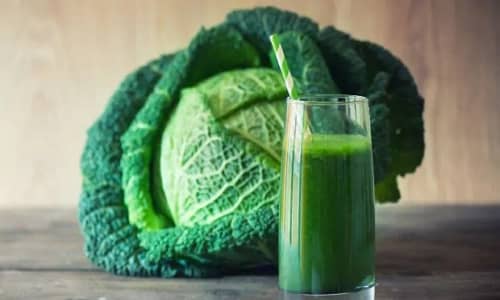Cabbage juice benefits, side effects - When should you take it before or after a meal?
Cabbage juice Nutrition

| Cabbage juice (100g) Nutrition | |||
| Carbohydrate | Protein | Fat | Calories |
| 4g | 1g | 0g | 21kcal |
| Main Nutrition | Vitamin C, Vitamin K, Vitamin U, Dietary Fiber | ||
| Main Benefits | Improves constipation and promotes skin and gastrointestinal health | ||
| Side Effects | Excessive intake may cause abdominal pain and decreased thyroid function. | ||
Cabbage juice is made by grinding cabbage with a blender or extracting its juice using a machine. When ground with a mixer, it is often opaque light green. However, when extracted by machine, it is often transparent and brown in color. The taste and aroma are not good, and many people say that it tastes fishy. However, it is popular as a health food because it helps with gastrointestinal health and has various other benefits.
2. Cabbage juice Benefits

1. Gastrointestinal health
The most notable benefit of cabbage juice is that it helps with gastrointestinal health. This is because cabbage juice contains vitamin U. This ingredient protects the stomach lining from stomach acid and helps prevent damage to the stomach lining. Additionally, it participates in the production of gastric mucosa by promoting prostaglandin secretion. Therefore, it also helps with hemostasis in case of bleeding in the stomach mucosa. These effects make it effective in preventing various stomach diseases, from heartburn to reflux esophagitis and stomach ulcers.
2. Improving and preventing constipation
Among constipation patients, it is easy to find people who take cabbage juice for treatment. This is because cabbage juice is rich in dietary fiber. Dietary fiber has the function of assisting intestinal peristalsis, which helps smooth bowel movements. Therefore, it expels accumulated waste products in the intestines and softens hard stools. This is effective in improving and preventing constipation.
3. Anticancer Effect
Cabbage juice contains indole-3-carbinol (hereinafter referred to as carbinol), sulforaphane, and isothiocyanate. First, carbinol helps prevent cancer cell proliferation by suppressing abnormal cell proliferation. It is especially effective in preventing cancer such as breast and cervical cancer. And sulforaphane also helps prevent cancer. Isothiocyanate is a unique component of cabbage and is known to help with anti-cancer activity and to be effective in preventing cancer.
4. Skin Health
Cabbage juice contains various vitamins, carotenoids, etc. Vitamin B6 and vitamin C contained in cabbage juice help skin health. Vitamin B6 helps control sebum in the skin, making it effective for acne-prone skin. And vitamin C has the function of helping the regeneration of skin cell tissue, helping to create elastic skin. Additionally, carotenoids are effective for overall skin health by preventing skin cell aging through antioxidant properties.
5. Bone health
Cabbage juice contains calcium and vitamin K, which help support bone health. Calcium plays a role in maintaining and building healthy bones. Therefore, it is an essential ingredient for bone health. And vitamin K prevents calcium from being excreted out of the body and aids absorption. This prevents bones from weakening and helps maintain strong bones. It is also effective in preventing osteoporosis.
3. Cabbage juice How to make?
4. Cabbage juice Side Effect
- A component called raffinose in cabbage juice can create gas in the intestines and cause abdominal bloating.
- Cabbage juice contains vitamin K. This ingredient has the ability to coagulate blood and may have adverse effects on people taking anticoagulant medications.
- Caution must be exercised as excessive consumption of cabbage juice may cause decreased thyroid function.